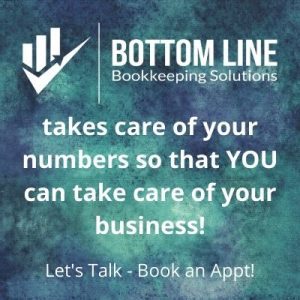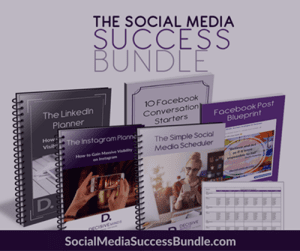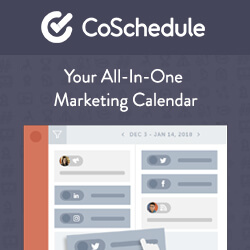 by Guest Blogger, Adam Urbanski,
by Guest Blogger, Adam Urbanski,
The Millionaire Marketing Mentor
When a decade ago I was faced with having to sell my services for the first time I was terrified . I hated asking for the sale and dreaded the part where my potential clients inevitably came up with objections why they couldn't use my services.
I've since learned that lack of objections is not necessarily a good thing. In fact, I now welcome it when prospects tell me why they can't do business with me.
Frankly, when a potential client shares his reasons why he or she hesitates to take advantage of my offer, to me it's a sign of two things; one – they are interested in my services, and two – I'm getting closer to closing the deal.
But many professionals, like consultants or coaches, find “overcoming objections” and “closing” the deal stressful, unpleasant and pushy. If that's you, I want to share with you two lessons that helped me develop a different mindset around this.
First, a “no” doesn't always mean “no”. Often it simply means “not now” or “I don't have enough information yet
to say yes.”Second, you can't “overcome” your prospect's objections – but you can give them information and tools that allow them to make a new decision.
In my Attract Clients Like Crazy program I teach a specific process that doesn't rely on memorizing scripts and is the most natural way to lead potential customers towards making a buying decision. (Note: my new ACLC program will be available for sale in a couple of weeks – you will love it!)
For now, if you too experience anxiety around “closing” sales here are my tested and proven responses to the top five objections your prospective clients are very likely to raise.
OBJECTION #1: I HAVE TO THINK ABOUT IT.
- “I don't blame you. Hiring a <coach, consultant, trainer, copywriter, therapist, etc.> can be a big decision. Can you share with me what specific aspect of my services you are concerned about?”
- “Yes, I can see how this can be a big decision. You know I found that typically my clients are initially concerned with one of the three things: is the problem important enough to solve it now, is this the right solution for your situation, can you afford the solution? Which one of those concerns you the most?”
- “Hmmm… I see. Let me ask you… Let's say we get started on this project – what are the downsides?”
OBJECTION #2: I HAVE TO TALK TO MY PARTNER ABOUT IT.
- “Great. What kinds of questions do you think they might they ask?”
- “Good idea. I always discuss decisions like this with my partner (or spouse). But let me ask you a question – what will you do when your partner doesn't like the idea of us moving forward with this?”
OBJECTION #3: IT'S TOO EXPENSIVE.
- “Expensive comparing to what?”
- “Expensive?! What's really expensive is your current way of thinking! It's produced the results you have right now and I think we both already agreed that without outside perspective and help you will just keep getting harder and harder and nowhere really fast! Now, let's looks again how we can ensure that you get a great ROI on your investment in the next 90 days and then let's make it a top priority at the beginning of our project…”
- “Yes, it's a solid investment. I tell you what – I know this is only worthwhile if you produce solid results, right? What's the one result you would want to be absolutely sure we could produce in the next <month, 90 days, six months> that would have you really happy you hired me? Great! Why don't we make this our top priority and get started right away?”
- “Not really. How does this investment compare to what it's costing you to do nothing about this problem?”
- “Frankly, that's exactly why you need me.”
OBJECTION #4: I SHOULD BE ABLE TO DO IT ON MY OWN.
- “Hmmmm… how long have you been dealing with this issue? If you haven't solved it on your own so far what makes you think you can do it now?”
- “Yes, I suppose you could. But let me ask you something: when was the last time you saw (heard) of a heart surgeon performing an open heart surgery on himself?”
- “With all the respect… I must disagree. If you thought you could solve this problem on your own we wouldn't be talking right now. Tell me, how would things be different if you could rely on an unbiased opinion to give you a fresh perspective/solutions to this problem?”
OBJECTION #5: I DON'T HAVE THE TIME RIGHT NOW.
- “Yes, it will take some time to address this issue. How much more time per week could you devote to other, revenue-generating activities if you could eliminate dealing with this problem on ongoing bases?”
- “That's funny; you just told me it takes you 10 hours a week to deal with this problem – wouldn't it make sense to hire someone like myself and solve it so that you can use your time on more productive tasks?”
- “Wow, if you are that busy and you are still not getting the results you want perhaps it would make sense to start the project by helping you better prioritize your activities and leverage your time more effectively?”
These are only a few examples of responses I found helpful in getting to a “yes” in negotiating a sale. Rather than trying to memorize those specific sentences I suggest you try to understand and learn the underlying concepts each of the responses is based on.
Here is what you must understand; an objection is a cover for a deeper concern. By voicing it your prospects give you an opportunity to address it and provide information to eliminate it. So quit trying to prove your point and instead ask thought-provoking questions. I think you will be pleasantly surprised by the outcomes.
~~~~~~~~~~~~~~~~~~~~~~~~~~~~~~~~~~~~~~~~~~~~~~~~
© 2000-2010 Marketing Mentors Inc. All Rights Reserved.
The author, Adam Urbanski, helps service professionals and business owners how to attract all the new clients they want, and how to develop marketing
strategies to increase sales and profits. His website offers more how-to articles and free tips to create a winning marketing action plan at www.themarketingmentors.com.
~~~~~~~~~~~~~~~~~~~~~~~~~~~~~~~~~~~~~~~~~~~~~~~~






Hey Michele,
I’m honored you are sharing this with your readers. Thank you! (BTW, I’m looking forward to hanging out with you on our Millionaire Apprentice Club Cruise next month; we’ll have a blast!)
Adam
You are so welcome! You always have such great insights whether it be in general for business or specifically for marketing. I have learned so much from you. And I can’t wait to go on the cruise next month and spend some down time with you and Bo and my fellow Millionaire Apprentice Club Members. Thanks,
Michele
Thank you Carrie – I appreciate that. Let me add I am a big fan of both you and the work you do with business owners! Have a great day! Thanks again,
Michele
Great post! Just shared with my tweet stream! Be prepared for the potential conversation, no matter which direction it goes 😉
Carrie Wilkerson
The Barefoot Executive
http://theBossMovie.com
Hey Oma – Thanks for sharing it. I read something great on your blog and I wanted to post it here so everyone can see it.
Oma’s “End of Year Poem”
Have you done any stretching and growing this year?
Have you achieved anything in spite of your fears?
Did you venture beyond a comfort zone or two?
Or did you start something new, and see it through?
It is not too late to do something great;
And it’s way too early to shut the gate!
So gird up your loins and remember who you are,
You’re a winner, you’re a woman; you can do it; you’re A STAR!
Copyright (c) 2010 Oma Edoja
Thanks, Michele
Oh Michele, thanks!
I wrote it to encourage those who might be thinking they hadn’t achieved much this year, and might already be giving up. As long as we stretch and grow, venture beyond our comfort zones, hold on to the things we start, and see them through to completion, we have achieved a great deal!
Remember the 80/20 rule? It just might be in the last part of the year that the harvest will come. So, let’s keep the momentum going, guys. It’s not too late to DO SOMETHING GREAT!